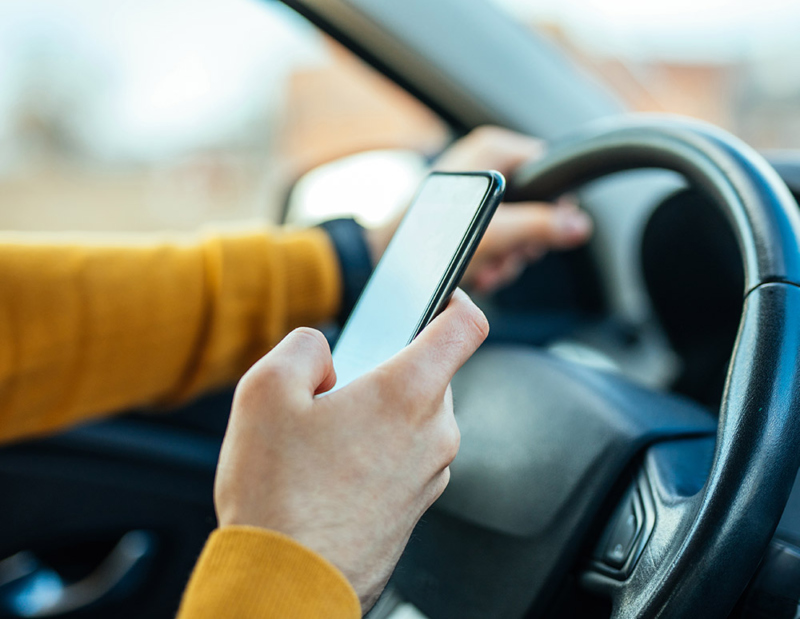
Did you know that if you’re driving and engaging in a conversation on your mobile device, you are over four times more likely to be involved in an accident? Let’s take a look at what constitutes distracted driving, what the consequences are and what you can do to curb any bad habits you’ve developed.
What is Distracted Driving?
According to the National Highway Traffic Safety Administration (NHTSA), distracted driving is “any activity that diverts attention from driving, including talking or texting on your phone, eating and drinking, talking to people in your vehicle, fiddling with the stereo, entertainment or navigation system — anything that takes your attention away from the task of safe driving.” Here are some specific examples:
- Texting or dialing your phone or hand-held wireless device
- Using your tablet or portable gaming system
- Engaging with a display screen unrelated to driving (e.g., watching a video)
- Programming a GPS (if not via voice command)
- Eating, drinking, smoking, grooming, reaching for things or reading while driving
Even in places where it’s legal to use a hands-free device while driving, the risk of being involved in an accident is still greatly increased. Talking on any device can diminish your reaction time, making you a risk to both yourself and others.
Distracted Driving Can Be Deadly
According to the NHTSA, distracted driving was responsible for a staggering 2,841 deaths in 2018, the most recent year for which statistics are available. Among those killed were 1,730 drivers, 605 passengers, 400 pedestrians and 77 bicyclists.
How to Prevent Distracted Driving
We’ve become accustomed to responding to our phones as soon as they chime, beep, and vibrate, and it can be easy to find ourselves answering calls or pressing away at buttons while driving. Here are some tips on what you can do to avoid becoming distracted while driving:
Turn Your Mobile Device Off
This is both the easiest and the hardest solution. Powering down your device ensures that you’ll be distraction-free, but doing this requires some discipline. Try turning your phone off when you enter your car, then turning it back on when you get out.
Hide Your Device
Even if you have your phone off and it’s beside you, you might be tempted to power it up while driving to see if you’ve missed a call or message. If you can’t see your phone, chances are you’ll be less tempted to respond to it. Try putting your device in the trunk of the car before getting in. You probably won’t even miss it.
Set Your Phone to Do Not Disturb
Most phones now have a Do Not Disturb feature. This feature will prevent calls and texts from coming in unless the caller is on a pre-designated list or the same number calls multiple times in a row. Setting your device to Do Not Disturb while having your Bluetooth activated will ensure the only calls that will reach you are important ones.
Give Your Phone to a Passenger
If you’re expecting an important call or text, give your phone to someone else who can respond to any message. They can take care of the call while you take care of the driving.
Protect Yourself and Others with Auto Insurance
You know the dangers of distracted driving now, but other drivers are still a risk to you and your family’s safety. Clyde Paul Insurance Agency is here for all of your auto insurance needs. If you want to learn how to protect yourself from distracted drivers with auto insurance, please contact us at 201-991-7598 or Info@ClydePaul.com.
